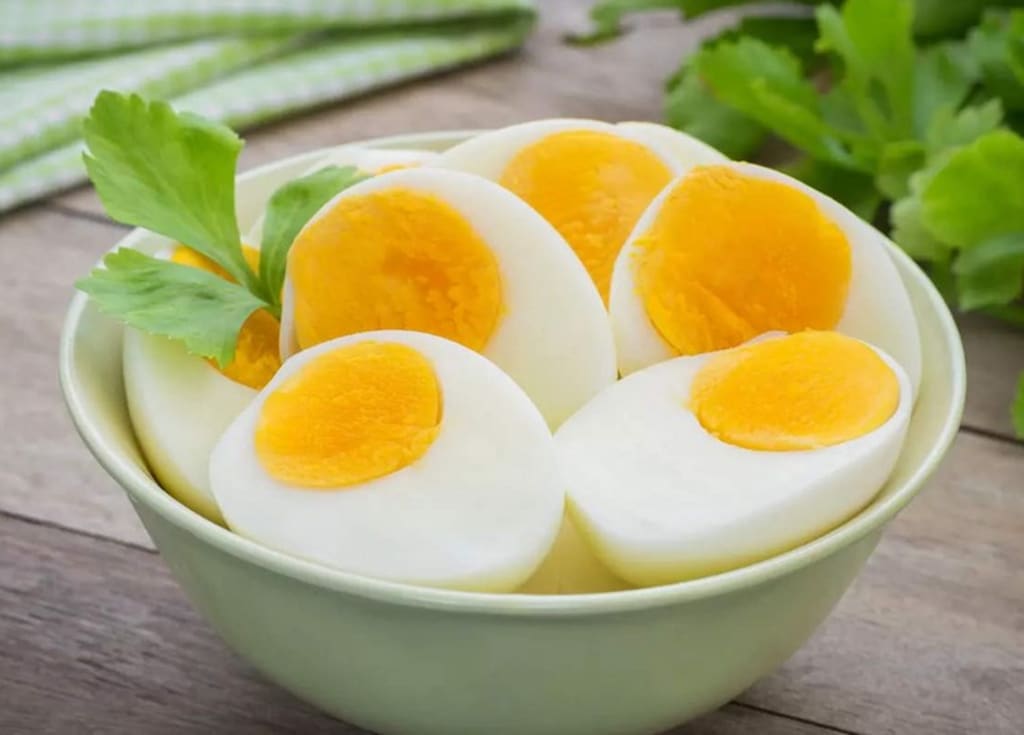Chicken eggs produce antibodies against covid-19
Researchers from the USA have successfully produced antibodies for the mutant protein SARS-CoV-2 derived from hen eggs

Researchers from the University of California, Davis City, CA, USA, have successfully developed an antibody against SARS-CoV-2, a mutant protein obtained from chicken eggs. Therefore, these vaccines can be used to treat or prevent the spread of Covid-19. The study was published on July 9 in the journal Virology.
Poultry is an ideal species for producing many vaccines quickly and inexpensively, says Rodrigo Gallardo, professor of avian medicine in the Department of Population and Reproductive Health, Department of Veterinary Medicine, University of California.
Rodrigo Gallardo, professor of poultry medicine in the Department of Population Health and Reproductive Medicine at the UC Davis School of Veterinary Medicine, said, "The beauty of the system is that it can produce many antibodies in birds." “Besides the low cost of producing these antibodies in hens, they can be updated very fast by using updated antigens to hyperimmunize hens, allowing protection against current variant strains."
Birds produce a type of antibody called IgY, which is similar to IgG in humans and other animals. IgY does not cause allergic or immune reactions when injected into humans. IgY is found both in the blood of birds and in eggs. You can get a lot of IgY because hens lay about 300 eggs a year, Gallardo said.
Will chickens help people fight the epidemic?
In their experiments, the researchers injected chickens with two doses of a vaccine that binds to the mutant SARS-CoV-2 protein or its receptor-binding region (the region of the S protein that the virus uses to enter the brain). ) antibodies were measured in blood collected from hens and eggs 3 and 6 weeks after vaccination.
The ability of these antibodies to infect the human brain was sent to the National Center for Biosafety and Infectious Diseases at George Mason University to be tested.
The results showed that eggs and blood contain antibodies capable of recognizing SARS-CoV-2, but antibodies in the blood are more effective at destroying the pain virus. Positive the results, the scientists hope the vaccine can be used as a vaccine for people at high risk of contracting the new coronavirus.
Purified vaccines are being tested for their ability to prevent the coronavirus from infecting humans at the National Center for Biodefense and Infectious Diseases at George Mason University in Virginia.
Eggs and blood from vaccinated hens contain known SARS-CoV-2 antibodies. Antibodies in the blood are more effective at neutralizing the virus, probably because there are more antibodies in whole blood.
Gallardo is collaborating with colleagues Daria Mochly-Rosen at Stanford University and Michael Wallach at the University of Technology Sydney to develop an anti-ovulatory vaccine. The research team hopes to incorporate these antibodies into a preventive treatment, such as a spray, which can be used by people at risk of contracting the coronavirus.
Another author of this article is Emily Aston from the Department of Animal Science at UC Davis. Aarthi Narayanan, National Center for Biodefense and Infectious Diseases; and Sofia Egaña-Labrin, UC Davis College of Veterinary Medicine. The project was supported by the UC Davis College of Veterinary Medicine, Stanford University, and California Poultry Farmers.
The general applicability of chicken egg yolk antibodies: the performance of IgY immunoglobulins raised against the hypoxia-inducible factor 1alpha
Avian embryos and hatchlings acquire immunity by transferring maternal immunoglobulins from the blood to the yolk sac. Although it is one of the simplest types of antibody, egg immunoglobulin (IgY) from vaccinated hens has received little research attention to date.
Rapid production and isolation of IgY from egg yolk of hens immunized against human hypoxia-inducible factor-1 alpha subunit (HIF-1alpha).
Anti-HIF-1alpha IgY has been affinity purified and tested for its effectiveness in various applications. Elevated levels of HIF-1alpha protein were detected by Western blot analysis in tissue samples obtained from hypoxic cells of human, mouse, monkey, pig, and dog origin, while HIF-1alpha was not strong or absent in hypoxic quail and frog brains, respectively.
Electrophoretic mobility shift analysis showed that affinity-purified IgY antibodies recognize native HIF-1 (but not HIF-2) complexes that specifically bind to oligonucleotides containing HIF-1 DNA binding sites.
The IgY antibody also immunoprecipitated HIF-1alpha from hypoxic cell extracts. Immunofluorescence experiments using IgY antibodies allowed the detection of HIF-1alpha in the nuclei of hypoxic COS-7 cells. By way of comparison, the application of the mouse monoclonal antibody directed against the same HIF-1alpha fragment was more limited.
Vaccination of hens represents the best alternative method for the production of polyclonal antibodies because the cost of the poultry house is low, the collection of eggs is non-invasive, the isolation and affinity purification of IgY antibodies is quick and easy, and the use of IgY is wide.
About the Creator
Adamae Eden
I am a writer blogger that inspire you onhow to live your best life - mentally, health, spiritually, emotionally, lifestyle






Comments
There are no comments for this story
Be the first to respond and start the conversation.